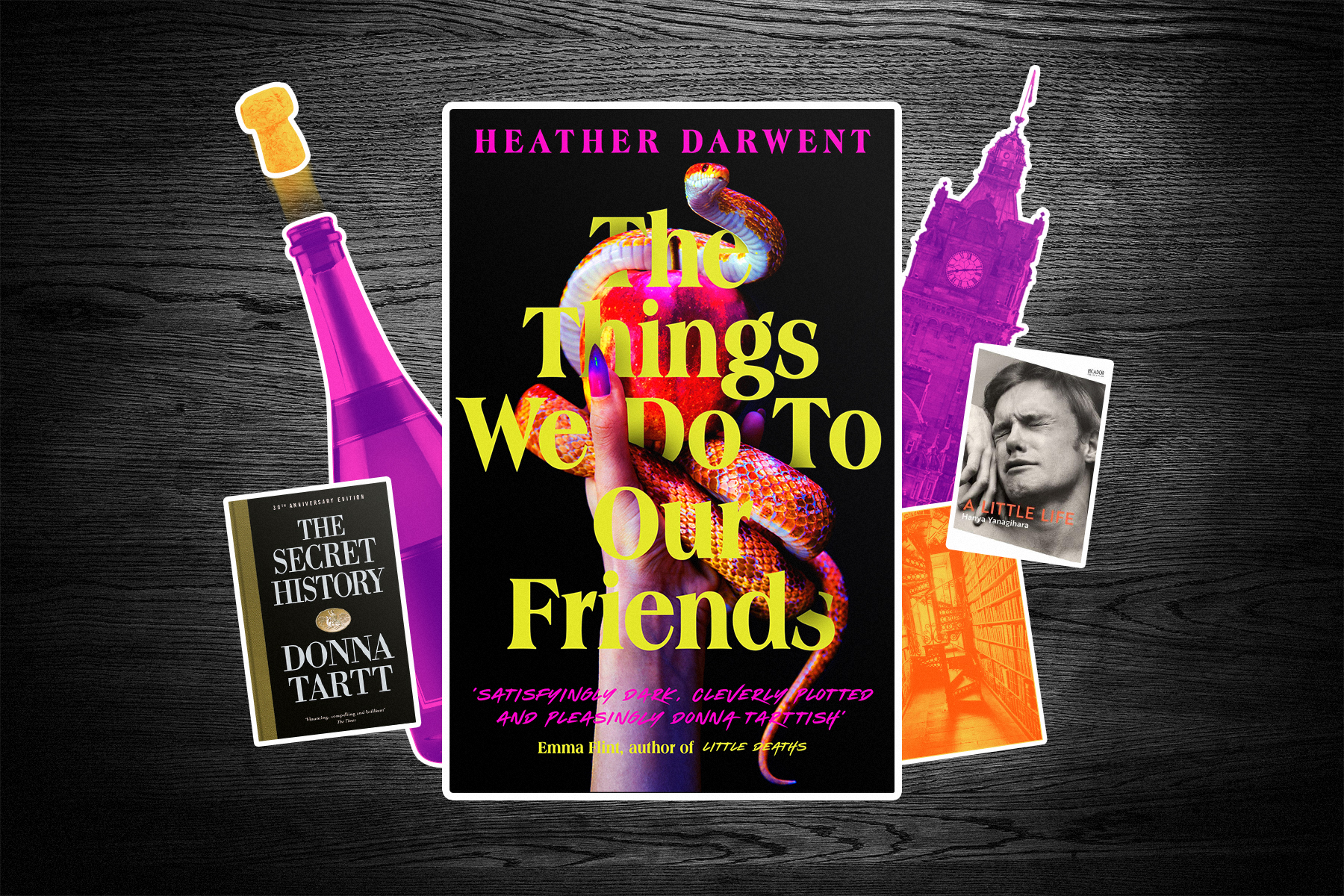
With its university setting, intriguing and glamorous group of girlfriends and twisting, murky character back stories, The Things We Do to Our Friends has proved compelling catnip on BookTok and beyond. Debut author Heather Darwent’s dark thriller has shot straight into the Top 10 of The Sunday Times bestseller list and is sitting pretty at the top of many a keen reader’s TBR. We spoke to her about the unlikely inspirations behind the book, and why it’s far more of a thriller than the latest Dark Academia offering.
Let’s go back to the beginning: how did The Things We Do to Our Friends start for you?
I started writing it just before I was 30, so a good few years ago now, but those memories of being 18 still felt quite vibrant and quite strong. I was pulling on those feelings that can occur at certain times in your life: of going to university, with a job, with a new relationship or other new start. That was how it began. Like many debut authors I ended up drawing on a lot of things from my own life. I also worked at a cocktail bar, and I studied history of art. It felt very natural to bring in those things I had experienced and a lot of memories from that age, but the plot is completely imaginary and quite fantastical.
The plot is pretty dark! Was that something you had planned?
It's so funny. When I started writing I wasn't sure what my style was, but then I started and it got dark and then it just kind of kept getting darker. There are definitely body horror aspects to it. As a reader, that’s what I’m drawn to: I was inspired by a lot of a lot crime writing, and while The Things We Do to Our Friends is not a procedural book, crime is often very dark as a genre.
Your book has been winning a lot of comparisons to Donna Tartt’s The Secret History, which is quite something. What’s that been like?
It’s a tricky one. I adore The Secret History, and I was influenced by it – what Donna Tartt does amazingly is to capture the magic of friendship. What I find interesting about it and many books that have a university setting is that the focus is generally going to be on a group of friends because it’s a period of your life that is so much about your friends in a way that is really magical. But The Secret History is also mostly about men, and my book has very female characters: at its core, it’s mainly women. The gaze is quite different there. The Things We Do to Our Friends is also more on the commercial side, it’s not as literary as The Secret History, and it’s more of a thriller.
Let's talk about the women, because female friendship is fascinating. And there is such a lot of it in your novel.
I love writing group settings. And some ways they're the hardest scenes because you're trying to kind of have all these different dynamics, but I love that idea of a group of friends together and there's all these different things going on at once. Take a dinner party: all these hints and aggressions.
What other inspirations fed into The Things We Do to Our Friends?
It’s very different to my book, but it’s one of my favourites: A Little Life by Hanya Yanahihara really gets into the intricacies of friendship. I was also very interested by this idea of entrepreneurship. Before I wrote this book I had been working at a startup for many years; and at the time that I was leaving university, there weren’t a lot of jobs and we didn’t have a clear path of what we were going to do. I loved this idea of uncertainty about what the next step was. After working in startup culture, I really wanted to capture that sense of feeling that you can do anything – of having a strange business idea and the confidence to do that, and how intoxicating it can be. I’m also obsessed with reading non-fiction about startups, such as how WeWork was founded. I put a lot of that into the dynamic between the friendship group in the book, and how that affects the power struggles between them. That was a really fun part of the narrative to develop; it just got darker and darker.
